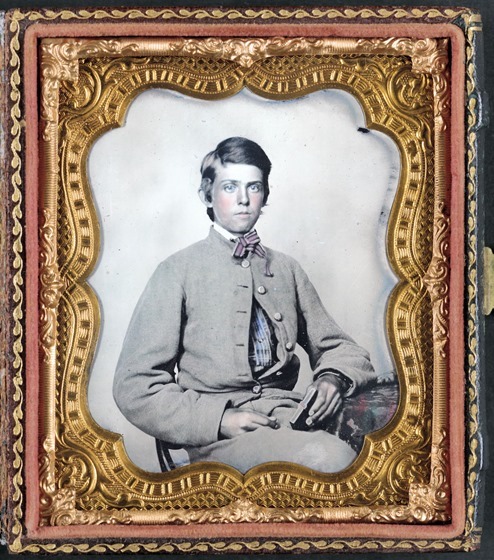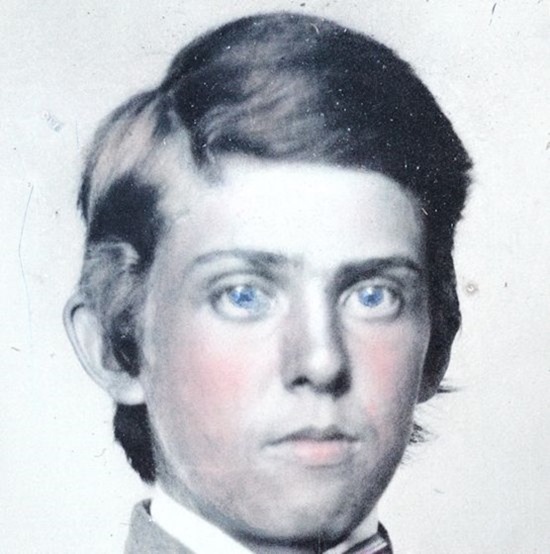Sunday, December 20.—A very cold day. The patients are all doing pretty well.
Yesterday we lost another of our nurses, named Crittenden. He was about the same age as Mr. Watson. He was a member of the Fifth South Carolina Regiment. He was ill but a few days, and died from the effects of a sore throat. He was a sincere Christian, and leaves no relatives to mourn for him.
On the 15th, Mr. Robertson died from the effects of a wound in the calf of one of his legs. Gangrene had set in, which destroyed the muscles and integuments extensively. He suffered severely, and nothing could be done to relieve him. Some ladies of the place took great interest in him and were very kind. He was a member of the Sixtieth North Carolina Regiment. His mother lives in Cherokee County, North Carolina, on the borders of Tennessee.
Another man died the same day, named Wm. Kirwin, a member of the Eighth Arkansas Regiment, who has a sister living in Issart County, Arkansas. He suffered a long time from consumption.
In a Mobile paper of the 14th inst. is a letter from Richmond, signed “Gamma.” The writer says he knows of four commissaries and quartermasters there who have made fortunes since the war. One, when he entered the service, was not worth a dollar, but after being in office a year and a half bought a farm for fifty thousand dollars, and has now retired with as much more on which to live. The other three are, if any thing, worse. Is the president powerless to remove this moral leprosy which is eating the very vitals of the Confederacy? I really think that honest men who wink at those things are nearly as bad as the culprits. I am acquainted with one instance where we all knew there was as plain a case of robbery as any could be, but nothing was done to the miscreant .
It was reported that one of General Bragg’s quartermasters was making thousands off the government.
General Bragg, on making inquiry, had proof enough against him to have him tried. He sent word to the president some two or three times before he could get him to have any thing done in the matter. At last this quartermaster underwent a trial. Fraud after fraud was proved on him; but as some of our most influential men had become his security to a largo amount, they managed to get him off with the penalty of his losing his commission. I consider the bitterest foe we are fighting openly better than such a man.













